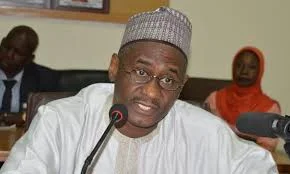As Nigeria grapples with escalating food insecurity, experts are sounding the alarm over the country’s worsening hunger crisis, driven by insecurity and ineffective agricultural policies. Reginald Ekeanyanwu, a prominent food security expert, has issued a stark warning, stating that Nigerians are becoming increasingly hungry, and if the situation reaches a tipping point, a revolution could ensue.
During an interview with ARISE NEWS on Tuesday, Ekeanyanwu said, “When hunger becomes the daily norm, there’s a problem, and that is exactly what is driving our insecurity issues.”
ALSO READ: Food Insecurity: NHRC Urges Security Agencies to Safeguard Farmers
Nigeria’s hunger crisis is reflected in alarming statistics. According to the world Good program (WFP), an estimated 26.5 million people across the country are projected to face acute hunger in the June-August 2024 lean season. This is a staggering increase from the 18.6 million people food insecure at the end of 2023, a significant increase from the previous year’s figures. These staggering numbers highlight the severity of the situation and the urgent need for effective interventions.
Ekeanyanwu criticized the government’s handling of agricultural resources and the lack of support for farmers, who face significant challenges due to insecurity.
He recounted an incident in Benue State where a farmer was killed, leading to widespread reluctance among others to work their fields. “Farmers are no longer going to their farms; they are farming within their communities,” he observed.
The food security expert argued for the mechanization of agriculture to increase productivity and employment.
“Agriculture can absorb all the unemployed Nigerian youth,” Ekeanyanwu stated, emphasizing the importance of modernizing farming practices and providing adequate tools and technology to farmers.
He also called for the commercialization of agriculture at the local government level, urging the use of federal funds to develop large-scale farming operations that can provide jobs and increase food production. However, Ekeanyanwu warned against the influence of cartels obstructing government interventions and emphasized the need for transparency and accountability.
Nigeria’s hunger crisis is exacerbated by soaring inflation rates, which reached a record high of 33.69% in April 2024, according to the National Bureau of Statistics. This surge in prices has significantly eroded the purchasing power of households, making it increasingly difficult for families to afford basic food items.
Furthermore, In the report, released in January, PricewaterhouseCoopers (PwC), a professional services firm, projected Nigeria’s inflation will marginally decline, however, the company said the Russia-Ukraine war, amongst other factors, might fuel an upward swing.
ALSO READ: Food Costs Reach Crisis Levels for Nigerians, Report Shows
Also, the report projected Nigeria’s gross domestic product (GDP) will rise by 3.1 percent but the poverty level in the country will increase to 38.8 percent in 2024.
The company said achieving sustainable growth in 2024 requires balancing ambitious fiscal reforms with effective budget implementation.Ekeanyanwu stressed the urgency of addressing the hunger crisis to prevent social upheaval. “If the government is not ready to do the right thing, the general public must participate and partner with the farmers,” he said, calling for collective action to ensure food security and sustainable agricultural development in Nigeria.
As the country grapples with these multifaceted challenges, experts and stakeholders alike are calling for decisive action from the government to address the underlying causes of food insecurity, including insecurity, inadequate support for farmers, and ineffective agricultural policies. Failure to take swift and comprehensive measures could have far-reaching consequences for Nigeria’s stability and the well-being of its citizens.






















